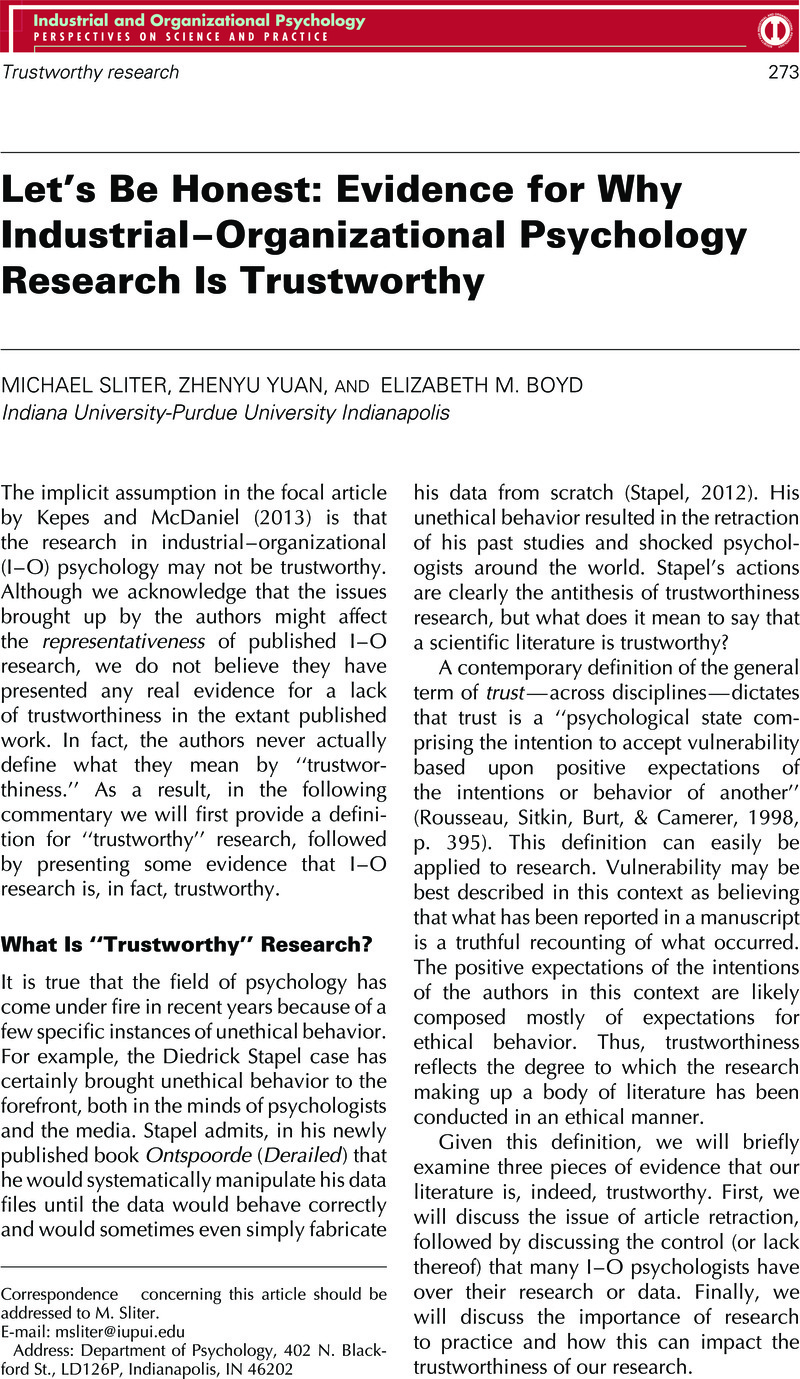Crossref Citations
This article has been cited by the following publications. This list is generated based on data provided by Crossref.
Banks, George C.
Field, James G.
Oswald, Frederick L.
O’Boyle, Ernest H.
Landis, Ronald S.
Rupp, Deborah E.
and
Rogelberg, Steven G.
2019.
Answers to 18 Questions About Open Science Practices.
Journal of Business and Psychology,
Vol. 34,
Issue. 3,
p.
257.



